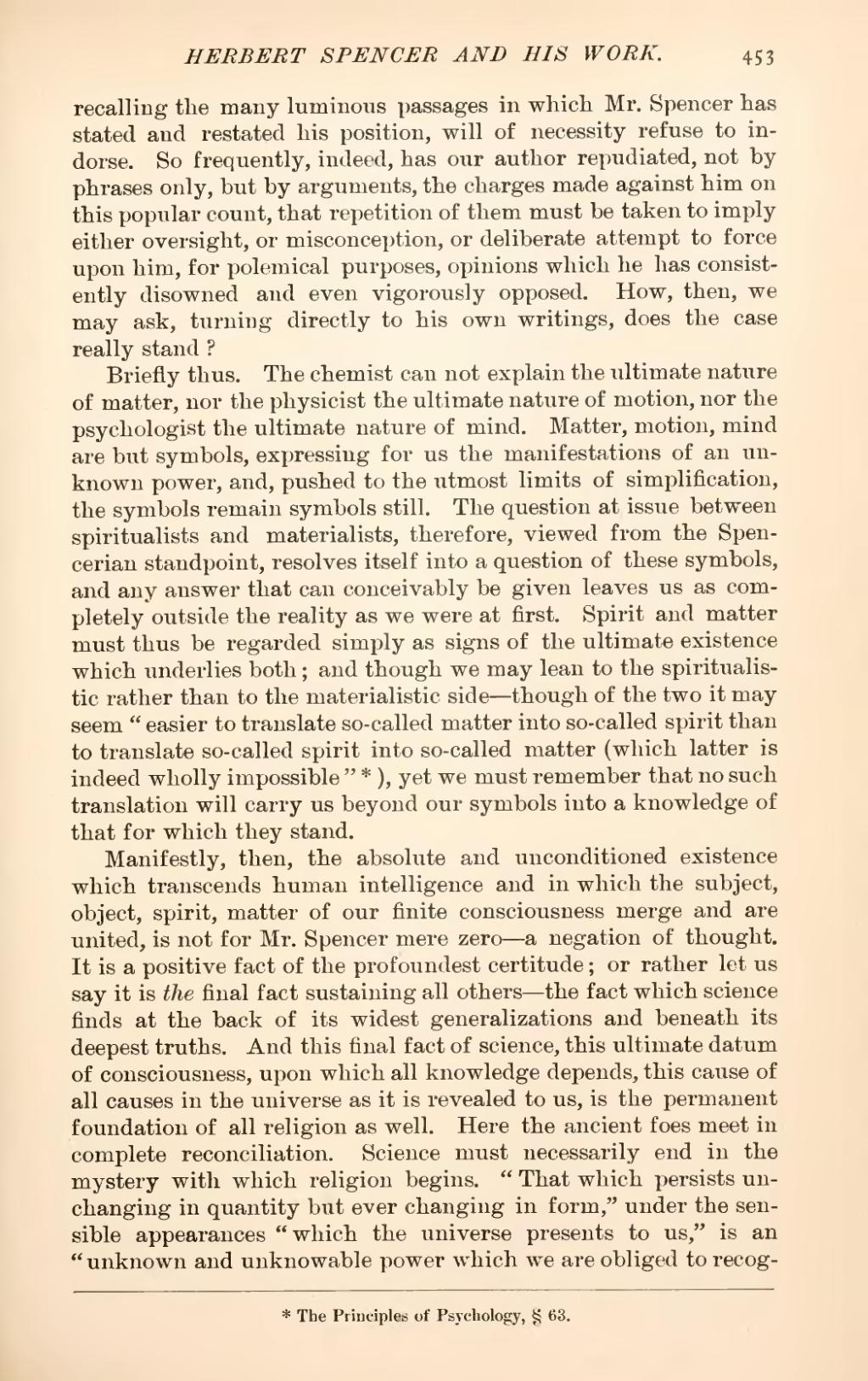recalling the many luminous passages in which Mr. Spencer has stated and restated his position, will of necessity refuse to indorse. So frequently, indeed, has our author repudiated, not by phrases only, but by arguments, the charges made against him on this popular count, that repetition of them must be taken to imply either oversight, or misconception, or deliberate attempt to force upon him, for polemical purposes, opinions which he has consistently disowned and even vigorously opposed. How, then, we may ask, turning directly to his own writings, does the case really stand?
Briefly thus. The chemist can not explain the ultimate nature of matter, nor the physicist the ultimate nature of motion, nor the psychologist the ultimate nature of mind. Matter, motion, mind are but symbols, expressing for us the manifestations of an unknown power, and, pushed to the utmost limits of simplification, the symbols remain symbols still. The question at issue between spiritualists and materialists, therefore, viewed from the Spencerian standpoint, resolves itself into a question of these symbols, and any answer that can conceivably be given leaves us as completely outside the reality as we were at first. Spirit and matter must thus be regarded simply as signs of the ultimate existence which underlies both; and though we may lean to the spiritualistic rather than to the materialistic side—though of the two it may seem "easier to translate so-called matter into so-called spirit than to translate so-called spirit into so-called matter (which latter is indeed wholly impossible"[1]), yet we must remember that no such translation will carry us beyond our symbols into a knowledge of that for which they stand.
Manifestly, then, the absolute and unconditioned existence which transcends human intelligence and in which the subject, object, spirit, matter of our finite consciousness merge and are united, is not for Mr. Spencer mere zero—a negation of thought. It is a positive fact of the profoundest certitude; or rather let us say it is the final fact sustaining all others—the fact which science finds at the back of its widest generalizations and beneath its deepest truths. And this final fact of science, this ultimate datum of consciousness, upon which all knowledge depends, this cause of all causes in the universe as it is revealed to us, is the permanent foundation of all religion as well. Here the ancient foes meet in complete reconciliation. Science must necessarily end in the mystery with which religion begins. "That which persists unchanging in quantity but ever changing in form," under the sensible appearances "which the universe presents to us," is an "unknown and unknowable power which we are obliged to recog-
- ↑ The Principles of Psychology, § 63.

